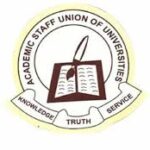As Nigerians were heaving as sigh of relief from the burden of a nine-month strike by the Academic Staff Union of Universities (ASUU), the Senior Staff Association of Nigerian Universities (SSANU) and the Non-Academic Staff Union (NASU) were concluding arrangements to begin an indefinite strike. Non-teaching staff in Nigerian universities on Tuesday, January 12, 2021, commenced a three-day nationwide protest to express grievances. Their demands centred, among others, on discrepancies in the implementation of the Integrated Personnel and Payroll Information System (IPPIS), the sharing formula of the N40 billion released for the payment of Earned Academic Allowances (EAAs) and the non-payment of arrears of the new minimum wage to its members.
The protesters, under the auspices of Joint Action Committee (JAC), which consists of the non-academic staff unions in Nigerian universities, staged peaceful demonstrations on university campuses across the country. At the University of Abuja main campus, the President of SSANU, Mohammed Ibrahim, said they would proceed with their next plan of action if government failed to respond positively to their demands.
- Stop de-marketing our university, VC tells FUNAAB ASUU
- Fresh crisis as varsity workers embark on indefinite strike Thursday
At the Bayero University, Kano, the protesters staged a peaceful demonstration from the institution’s convocation arena to the senate building where they were addressed by the Vice Chancellor, Professor Adamu Sagir Abbas. Presenting a letter of complaint to the vice chancellor for onward delivery to the Minister of Education, Malam Adamu Adamu, the SSANU chairman of the university, Dr Haruna Aliyu, identified inconsistency in their monthly pay due to IPPIS as their major concern and urged government to expedite action to address the issue as contained in the MoU it had signed.
At the end of the three-day nationwide protests, JAC ordered all branches of SSANU and NASU to hold joint congresses simultaneously tomorrow, Tuesday, January 19, 2021, to decide on possible commencement of an indefinite strike over the non-implementation of the agreements which the federal government signed with the unions on October 20, 2020. The JAC said its leadership would thereafter meet on Thursday this week to collate branch resolutions and decide on the commencement of the strike.
On the EAAs, non-academic workers in Nigerian universities are accusing the federal government of being impartial in the sharing formula of the N40bn meant for EAAs. While 75 per cent of the money was allocated to ASUU members, other unions in the universities have been allocated 25 per cent of the amount. It would be recalled that a similar unequal sharing formula was used in 2018 when the federal government released N23bn from which ASSU members received N18.4bn representing 89 per cent of the total amount, and the three non-academic unions were allocated N4.6bn representing 11 per cent of N23bn.
As the name implies, it was wrong for government, from the onset to have allowed non-academic university workers to be part of the EAA because it is exclusively paid in lieu of specific academic duties performed by lecturers. Unlike routine allowances, EAA has to be earned even by the lecturers, which is why it is so called. One of the criteria for earning the EAA is excess workload usually determined by the number of students in a particular course. Normal size of a class has been defined for science and arts courses beyond which a lecturer earns an allowance for courses in which the number of students is in excess of normal class size. Postgraduate supervision is another condition for earning the EAA. This means, for instance, that a lecturer even as a professor shall not earn the EAA if he is not involved in postgraduate supervision. Where and how does a non-academic come into all these?
While we call on government to quickly invite the unions to the negotiation table to resolve all pending demands, including issues associated with the implementation of IPPIS and the new minimum wage, we advise that a different set of allowance to be called Earned Non-Academic Allowances (ENAAs) should be agreed upon for non-academic staff in Nigerian universities. Students have already lost a year from their study durations. Strikes must not be allowed to destroy university education in the country. This looming strike must be averted.

 Join Daily Trust WhatsApp Community For Quick Access To News and Happenings Around You.
Join Daily Trust WhatsApp Community For Quick Access To News and Happenings Around You.

